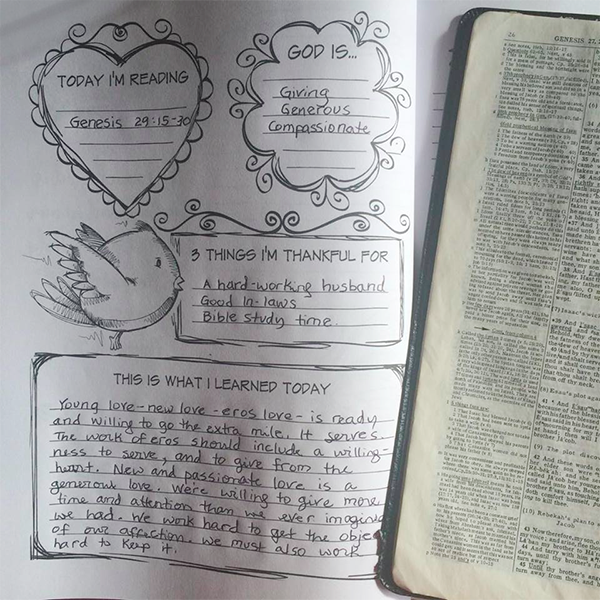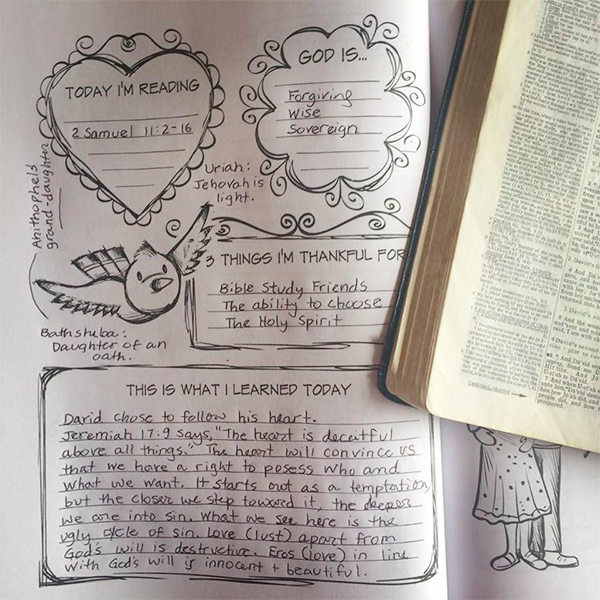
This is week 2 – part 2 in our Bible study, “Learning to Love.” This week we’re taking a closer look at the Greek word “Eros” – romantic, passionate love. If you’d like to join our study, click here to find the free Bible study guide and all of the information you’ll need to join in.
I’ve been asked a few times if I’ll be doing a study after this one. The answer to that question is YES. I’ll announce all of the details later next week.
We’ve been reading about romantic, passionate love this week. We’ve also been reading about the dangers of following your heart without counting the cost. David wanted Bathsheba so badly that he stepped into a devastating cycle of sin (2 Sam. 11).
Eros has a way of clouding our judgement. It’s like a drug that takes control over us. Our palms get sweaty, our hearts start pounding, and regardless of how old we might be, we feel like teenagers all over again.
We go to great lengths for eros. As long as we’re feeling the euphoria of new love we put in the effort. We’re patient, we’re kind, and we’re willing to overlook faults.
Being kind when we’re getting an emotional return for our effort is easy. What isn’t so easy is being as patient and kind when Eros wears off. When the kids have been crying all day and your husband comes home from work just as exhausted and stressed out as you are. When you have a big night planned for your husband, and all he wants to do is chill out on the couch with his eyes closed while you finish the dishes. Those are the days you need a love that runs deep.
Eros is all about you, but true love–that kind that’s long-lasting and pure–has little to do with you.
It’s about making sacrifices for the ones that you love. It’s being patient, and kind, and sincere when the feeling of Eros wears off.
That’s why the story of Hannah and Elkanah (1 Samuel 1:1-20) is one of my favorite love stories of all time. Ekanah was ready and willing to give up that which he valued the most to make his wife happy.
Some people say, “I fell out of love. I’m not feeling it any more. What’s wrong with us?”
Chances are, there’s nothing wrong with you or your marriage. Eros has simply stepped aside, now it’s your turn to do the work. No matter how old you both get, never stop holding hands, never stop dancing, and never stop saying, “I love you.”
“We must do the works of Eros when Eros is not present. This all good lovers know.” C.S. Lewis
Jacob and Rachel – Genesis 29:15-30
In Genesis 29:15-30, we find the love story of Jacob who worked 14 years for his bride, Rachel. It teaches us a lot about love.
Young love–new love–eros love–is ready and willing to go the extra mile. It serves. The work of eros should include a willingness to serve, and to give from the heart. New and passionate love is a generous love. We are willing to give more time and attention than we ever imagined we had. We work hard to get the object of our affection. We must also work hard to keep it.
Some say that eros is a selfish love. And yes it certainly can be. If we we’re only willing work for eros as long as we’re feeling the excitement, we’re looking inward. We must be willing to put in the work and make sacrifices for each other long after the euphoria of new love wears off. That’s when our love is put to the test.

this week’s notes in my Quieting Your Heart Journal
(affil link)
David and Bathsheba – 2 Samuel 11:2-16
In The Four Loves, C.S. Lewis describes how lovers idolize eros and give love a law of its own.
“They will seem like proofs of piety and zeal toward Eros. The pair can say to one another in an almost sacrificial spirit, “It is for love’s sake that I have neglected my parents—left my children—cheated my partner—failed my friend at his greatest need.” These reasons in love’s law have passed for good.”
In 2 Samuel 11:2-16 we find the story of David and Bathsheba. David chose to follow his heart. Jeremiah 17:9 says, “The heart is deceitful above all things.” The heart will convince us that we have a right to possess who and what we want. It starts out as a temptation, but the closer we step toward it, the deeper we are into sin. What we see here is the ugly cycle of sin. Love (or rather “lust”) apart from God’s will is destructive. Eros (love) in line with God’s will is innocent & beautiful.
Shelly Frye, added this to the discussion on Facebook: Reading from the John Corson’s application commentary bible. I learned, we see David not only committed adultery but murder. David was a man after God’s own heart. However he neglected his duty to go to battle. Then his eyes wandered. His curiosity was aroused. He committed adultery and murder David was stumbling badly. But that’s the way sin is. Sin has a sneaky way of compounding itself. Before you know it you’re more deeply involved in it than you ever thought you would be. That is why it is absolutely essential to not give in at the first point of temptation. You cannot control the course of your destiny once you allow yourself to begin to flirt with sin. It will capture you. It will ensnare you. And ultimately it will destroy you. David once killed giants. Now this giant is killing him.

this week’s notes in my Quieting Your Heart Journal
(affil link)
Hannah and Elkanah – 1 Samuel 1:1-20
When Hannah was provoked she fasted. That’s a good example to me on how I should be handling difficult situations in my own life.
Another thing I noticed in this chapter is that, “The Lord shut her womb.” (v.5) That goes to show us the providence of God on our lives. We don’t always understand His will and His ways, but His wisdom runs deeper than we could ever imagine.
Now for the love story… Elkanah loved Hannah enough to give up what was most important to them–a child. A marriage is best served when we’re willing to give up the things that we think will make us happy for the sake of each other. We need courage to love well, because it calls us to patiently trust God with our future.

this week’s notes in my Quieting Your Heart Journal
(affil link)
Click here to download and print today’s coloring page.

